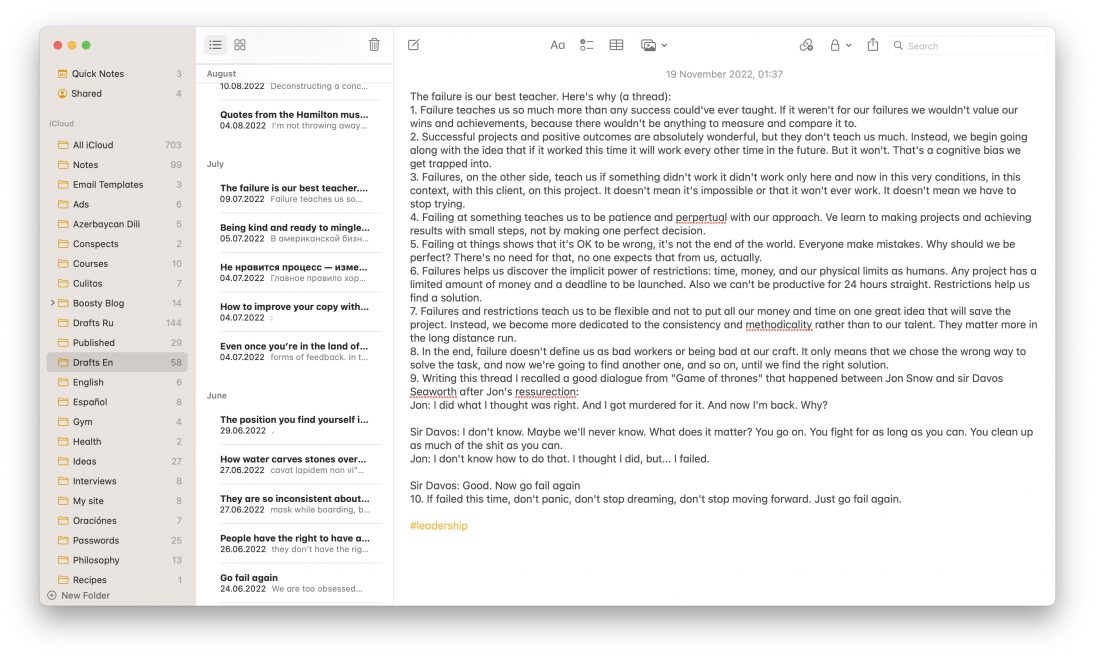Note-taking at lectures
My friend Tonya Alexeeva posted this on Twitter some day:
“Tomorrow begins my intensive one-week course on machine learning. I just realized I’m not used to make notes, but it would be great to revise this material later. Any tips for making notes for technical subjects and coding?”
I came across her tweet and gave a piece of advice on making notes during meetings and lectures. Here’s my perspective:
I don’t think there are any special tips for machine learning. No matter what subject you’re learning, techniques are pretty much the same. There’re dos and don’ts.
Dos:
- Take notes not during the lecture, but in the first 30 min after it. This way you’ll be able to focus on listening and absorbing new information.
- Sketch anything that requires visual explanation. Images work better than abrupt and incoherent notes.
- Record a memo of the class to go back to something you’ve missed later.
Don’ts
- Don’t make screenshots or photos of the teacher’s slides. No one ever gets back to review them.
- Don’t try to remember and catch every minute detail. Pay attention to what brings novelty into your work, not what you already know.
- Don’t be afraid of asking questions like. “Why” is the best tool of gaining knowledge. Use it as more as you can.
Subscribe to my newsletter and follow me on Mastodon to receive new interviews on management and leadership on this blog.
